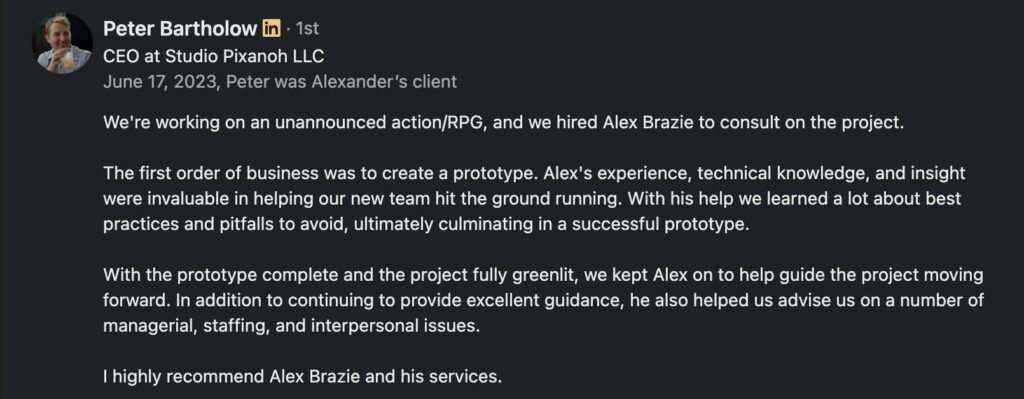Funsmith Fireside Chats Episode #8
Guest: Osama Dorias
In this episode, Osama Dorias goes into the different skillset requirements between a maker position and a leadership position. In addition, he shares different managerial styles to improve collaboration in a diverse game dev team setting. He also dives into how to deal with mistreatment in the workplace as an entry-level game development professional.
Osama Dorias is the Senior Partner Relations Manager at Unity Technologies. In the past, he’s worked as a senior and lead game designer at studios such as Warner Brothers, Gameloft, GEE Media, Ubisoft, and Minority Media.
Currently, Osama teaches game design at Dawson College, where he loves to empower aspiring game designers in expressing themselves through game making. He has hosted game jams, workshops, and other community activities to this end, which culminated in co-founding the Montreal Independent Games Awards.
Listen to The Full Episode
Audio:
#8: Osama Dorias: How to Become a Lead Game Designer & Thrive
Podcast Platforms:
Referenced Links & Resources
Connect with Osama Dorias:
Connect with Alex:
Connect with Ari:
Mentioned Resources:
Free Game Design Learning Resource:
What is Video Game Mechanics (Beginner’s Guide)
How to Become a Video Game Designer
How to Write Game Design Document with Examples
Game Design Portfolio, with Examples (Guide)
Episode Chapters (with Timestamp)
0:00 – Introduction
3:59 – Osama’s initial intention coming into the industry
4:43 – How did Osama end up working with different games and genres
7:00 – Advice for aspiring game design students to choose their sub-discipline
9:05 – How to be passionate about working on a game genre you have no interest in
11:19 – What is a progression system in game design
17:34 – Why game designers must be flexible
24:45 – Why is leadership training needed
25:44 – How to contextually adapt your managerial style
38:39 – How to stand up for yourself in a junior game dev role when you face prejudice & ignorance
56:43 – How to resolve mistreatment inside your team
More Guest Quotes From This Episode
“One of the things that I try to pass on to my students whenever they ask me about that is that they don’t have enough information at the beginning to make the choice. They need to jump around a little bit until something sticks, until they realize what kind of designers they are. Try it out a little bit and see what’s a good fit for you.” — Osama Dorias
“The industry has started to acknowledge more openly now that the skills you need to lead a group are not the same as being the guru of a group, as well as not the same as the person who plans and schedules the entire organization.”— Osama Dorias
“Leadership training is eye-opening, there are situational skills that you could apply in different situations instead of thinking this is the thing that you could apply all the time. If you have a path that people can take optionally or at least explore to see if it’s a good fit, it’s better than just the reward track.” — Osama Dorias
“One of the problems in the managerial style is that if something’s going bad, being too optimistic is not good. The more useful approach is to hear out some solutions and think if you have a more measured and analytical approach to it, and you still show empathy. You’re in the trust of the team, and in the end, they understand. You have to have situational leadership, and when or when not to micromanage.” — Osama Dorias
“It’s a skill to develop all the different managerial styles that exist to foster them, learn from them, and figure out when to apply, it makes you a better manager in the end. It makes your team happier. This is similar to being a teacher, having different teaching styles and learning styles.” — Osama Dorias
“The way you fight ignorance is with knowledge. There was no ill intent, and the proof is once I started speaking up, change happened, and change happens quickly. I think that’s important for people to understand. It’s not until someone has reached a certain level of power and stability in their position and within the ecosystem of their industry that they have the patience, the trust, and the safety to take those risks.” — Osama Dorias
“If there’s an injustice to your team, if there’s something wrong, speak to your direct manager or supervisor only and see how they deal with it. If they’re not willing to deal with it, don’t do anything… …bide your time to come back and fight when the time is right.” — Osama Dorias
“The power to move another person is limited by the strength of the cord that connects you. That means, when someone just meets you, you’re gonna have to establish relationship over time,and have their goals, interests, and a shared set of values in mind. That thread grows into a rope, or a cord, or a chain at which point, then you can take immense leaps of faith and requests from other people. If you try to pull harder on the connection than it exists, it will always snap because the connection is not there.” — Osama Dorias
What was your favorite quote or lesson from this episode?
Please share your thoughts in the comments below.













